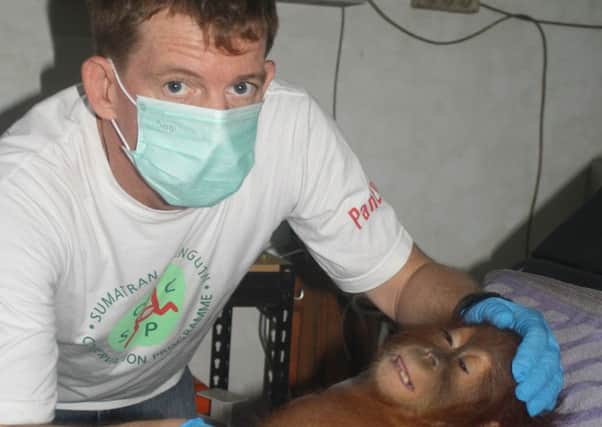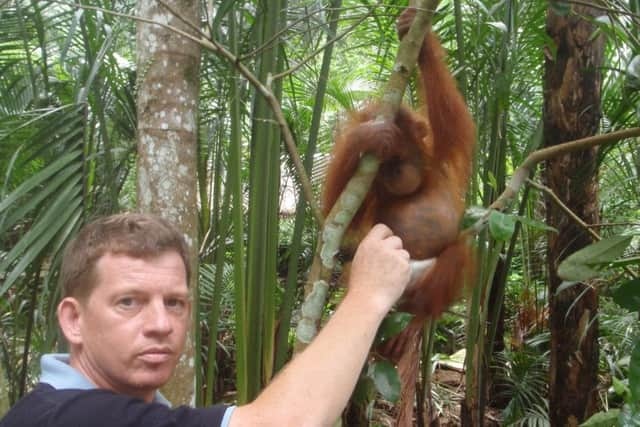Conservation heroes from Yorkshire in top 50 ‘most influential’


Noted for their brains and beguiling looks, some 6,600 orangutans still live in the wild in Sumatra - but they could be in line for extinction if the destruction of their last remaining habitat continues.
One of the key figures in the fight to protect orangutans, Hull-born Dr Ian Singleton has been named alongside Sir David Attenborough as among the most influential “conservation heroes” in the UK.
Advertisement
Hide AdAdvertisement
Hide AdDr Singleton and Prof Callum Roberts, from the University of York, a leading proponent of marine protected areas and no-take zones, are among 50 British conservationists chosen by a panel of experts to feature in BBC Wildlife Magazine’s first “Wildlife Power List”.


Hundreds of nominations were whittled down to a list of those judged as having the most potential to make a difference in the coming years.
They include Prince William whose decision to back a new global campaign against wildlife crime “might come to be seen as a tipping point in the war against the illegal wildlife trade”, the magazine said.
Dr Singleton, of the PanEco Foundation’s Sumatran Orangutan Conservation Programme, who grew up in Hedon, said he was “happy to be recognized”, but “humbled” by the scale of the problems he encounters, with the future of the Sumatran orangutan “never more threatened than it is now”.
Advertisement
Hide AdAdvertisement
Hide AdAlmost all its remaining habitat, a huge swathe of tropical rainforest known as the Leuser Ecosystem on Sumatra, is endangered by new plantation concessions, mining concessions and numerous illegal roads.
An area on the west coast of Aceh, known as the Tripa peat swamps, which harbours among the highest densities of orangutans anywhere in the world, has faced devastating slash and burn incursions by major palm oil corporations. After a huge campaign, one company, PT Kallista Alam was ordered to pay $30million in fines and to repair the damage.
Dr Singleton, who was once orangutan keeper at Jersey Zoo in the Channel Islands with Gerald Durrell, said he faced the problems of “business as usual”, corruption in every level of society and government and the disproportionate influence of a few extremely wealthy and powerful individuals and companies.
Despite this he counts among his successes rescuing hundreds of orangutans, including many kept for years in terrible conditions as illegal pets, crammed into small cages, or chained by the neck or waist to a tree.
Advertisement
Hide AdAdvertisement
Hide AdPalm oil companies now too face fines and prison for destroying orangutan habitats.
He said: “We realize we can’t stop all orangutan losses tomorrow. Our goal right now is to slow the rate of decrease of orangutan populations, so that when Indonesia is able to protect and manage its forests, there are enough orangutans left to guarantee the long term survival of the species.”
Prof Roberts, professor of marine conservation at the University of York’s “compelling, passionately argued” book Ocean of Life is a must-read, according to the magazine. He said: “When I started hardly anybody was interested or concerned about marine conservation and I have seen both interest and concern escalate rapidly.”
BBC Wildlife Magazine editor, Matt Swaine said: “These are the people who we believe will shape the way we see the natural world in the coming years and who have the greatest potential to deliver a positive outcome for wildlife both in the UK and abroad.”